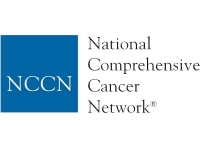Health
NCCN First-Ever U S GUIDELINES for RARE CANCERS ASSOCIATED With PREGNANCY
Treatment Preserving Fertility

(Source: National Comprehensive Cancer Network)
USPA NEWS -
The National Comprehensive Cancer Network has released New Treatment Guidelines for a Group of Rare Cancers that impact Women during Pregnancy. Gestational Trophoblastic Neoplasia (GTN), also known as Gestational Trophoblastic Disease (GTD), can occur when Tumors develop in the Cells that would normally form the Placenta during Pregnancy. It happens in approximately one out of every 1,000 Pregnancies in the United States, though it is more common in many Asian and African Countries. Due to the Rare Nature of this Condition, and the Small Number of Specialists Worldwide, Providers often are not Aware of how to provide the Best Care for People with GTN.
The National Comprehensive Cancer Network has released New Treatment Guidelines for a Group of Rare Cancers that impact Women during Pregnancy. Gestational Trophoblastic Neoplasia (GTN), also known as Gestational Trophoblastic Disease (GTD), can occur when Tumors develop in the Cells that would normally form the Placenta during Pregnancy. It happens in approximately one out of every 1,000 Pregnancies in the United States, though it is more common in many Asian and African Countries. Due to the Rare Nature of this Condition, and the Small Number of Specialists Worldwide, Providers often are not Aware of how to provide the Best Care for People with GTN.
The NCCN Guidelines for GTN details Treatments for Several Variations of the Disease. For Molar Pregnancy (also known as a Hydatiform Mole, a Rare Mass that can form inside the Womb during Early Pregnancy, resulting in an Abnormal Fetus), Surgery is the first, and often only Treatment required. It is generally performed Via Suction Dilation and Curettage. Low-Risk GTN is primarily treated with Single-Agent Chemotherapy, although Additional Chemotherapy or Surgery may be required for Persistent Disease. With High-Risk GTN, Treatment typically involves Multi-Agent Chemotherapy, with Possible Radiation Therapy for Brain Metastasis. Surgery can be used for Chemotherapy-Resistant Disease.
Dr. Mutch was joined on the GTN Committee by John Lurain, III, MD, Robert H. Lurie Comprehensive Cancer Center of Northwestern University and R. Kevin Reynolds, MD, University of Michigan Rogel Cancer Center. The Committee is a Subset of the Larger NCCN Guidelines Panel for Cervical, Uterine, and Vulvar Cancers, of which all three are Members.
The NCCN Guidelines for GTN bring the Total Number of NCCN Guidelines to 72. They are available Free-Of-Charge Online at NCCN.org or via the Virtual Library of NCCN Guidelines Mobile App for Smartphones and Tablets. NCCN Guidelines are the most Frequently-Updated Medical Guidelines in the World, with New Versions released at least once a year, and more often as needed. These Evidence and Expert Consensus-Based Guidelines are Downloaded Millions of Times a Year by Oncologists and other Clinicians Worldwide.
Source : National Comprehensive Cancer Network
Ruby BIRD
http://www.portfolio.uspa24.com/
Yasmina BEDDOU
http://www.yasmina-beddou.uspa24.com/
The NCCN Guidelines for GTN bring the Total Number of NCCN Guidelines to 72. They are available Free-Of-Charge Online at NCCN.org or via the Virtual Library of NCCN Guidelines Mobile App for Smartphones and Tablets. NCCN Guidelines are the most Frequently-Updated Medical Guidelines in the World, with New Versions released at least once a year, and more often as needed. These Evidence and Expert Consensus-Based Guidelines are Downloaded Millions of Times a Year by Oncologists and other Clinicians Worldwide.
Source : National Comprehensive Cancer Network
Ruby BIRD
http://www.portfolio.uspa24.com/
Yasmina BEDDOU
http://www.yasmina-beddou.uspa24.com/
Ruby Bird Yasmina Beddou Life Saving Treatment While Preserving Fertility New Nccn Guidelines For Gestational Trophoblastic Neoplasia Pregnant Women With Cancer Preserving Fertility
Liability for this article lies with the author, who also holds the copyright. Editorial content from USPA may be quoted on other websites as long as the quote comprises no more than 5% of the entire text, is marked as such and the source is named (via hyperlink).






